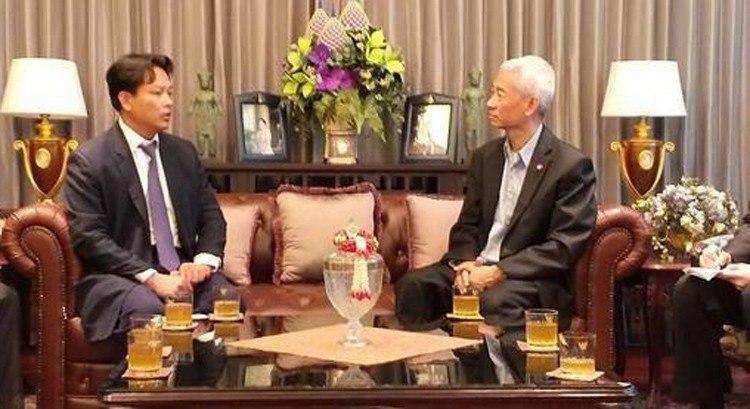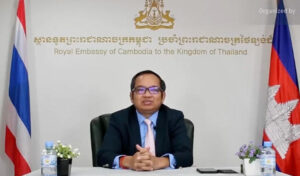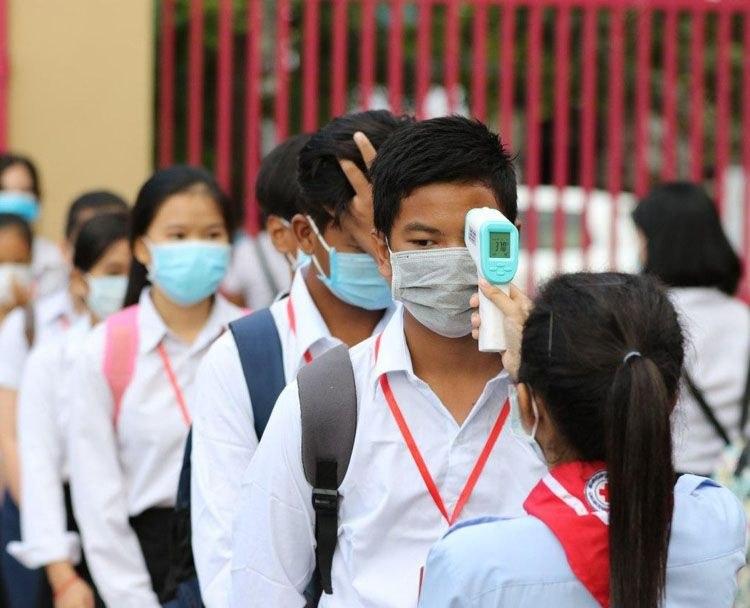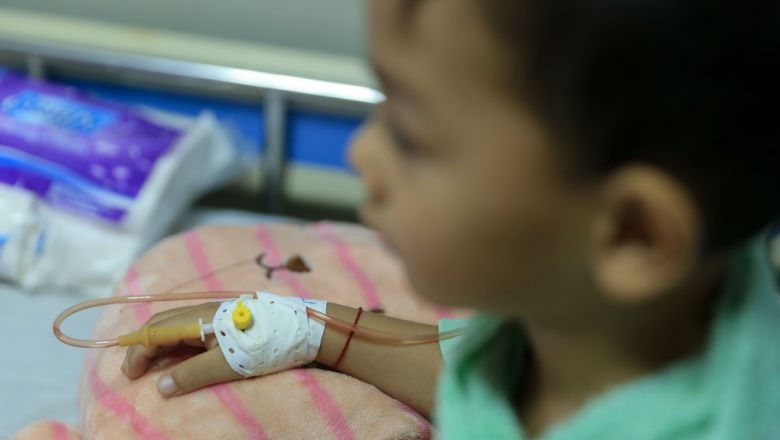‘Teach a man to fish’ way to help socio-economic recovery
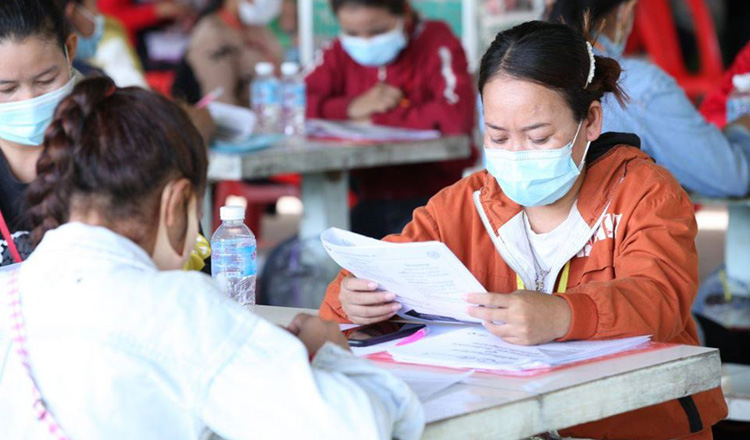 Laid off factory worker attend a soft skills training workshop organised by the Labour Ministry. Ministry
Laid off factory worker attend a soft skills training workshop organised by the Labour Ministry. Ministry
The coronavirus pandemic has wrought havoc on global economies, especially in countries like Cambodia and the impact on people’s livelihoods caused by job losses has been devastating. Khmer Times journalist Taing Rinith shares his thoughts on how Cambodians can help the economy to recover amid the COVID-19 pandemic.
For years, Cambodia’s economy has enjoyed rapid growth thanks to its booming garment and tourism industries. The two sectors account for a big chunk of the Kingdom’s GDP and have provided income for millions of people. For a very long time, they seemed too big to fail, until COVID-19 came around.
The public health crisis has brought with it one of the worst socio-economic calamities the Kingdom has ever witnessed. Its annual $7 billion garment and textile sector has been hit hard by the virus – in addition to the potential loss of the Everything-but-Arms trade preference scheme – resulting in factory shutdowns and massive lay-offs.
Last month, Tourism Minister Thong Khon said the global virus has hit the tourism sector the hardest around the world, with Cambodia expected to see foreign and local visitors decline by about 70 percent and 50 percent respectively this year, equivalent to a $3 billion loss for the country.
A huge number of people working and doing businesses in these two major sectors are losing their jobs and money.
The laid-off workers are struggling to find new jobs in the fields they have worked in for years because every garment factory or tour agency is experiencing hardship and thus not recruiting – not to mention that they will have to compete with low-skilled workers from other sectors and returning migrant workers who have also been laid off.
The huge rise in unemployed citizens could lead to serious social issues, such as an increase in crimes and public disorder.
The government has been making great effort in assisting the people, by providing aid through unemployment benefits, tax exemptions and most recently the “Cash Transfer Program for Poor and Vulnerable Households During COVID-19”. However, it is unknown how long this aid can go on or when the crisis will be over.
One English proverb says, “Give a man a fish and you feed him for a day; teach a man to fish and you feed him for a lifetime.”
Therefore, what Cambodians should have at the moment to push for socio-economic recovery are some cash to support their livelihood and new skills which will allow them to work in other industries.
The situation is despairing given that Cambodia, despite its hard work, has not achieved much success in diversifying its labour market.
The Kingdom is ranked 110 out of 140 economies in the World Economic Forum’s (WEF) 2018 Global Competitiveness Report based on businesses reporting the difficulty of finding highly skilled employees to fill technical roles.
Its economy is dependent on low-skilled, labour-intensive industries, but COVID-19 is suddenly forcing a shift in labour perspective.
TVET (Technical and Vocational Education and Training) is probably the fastest tool that allows for the move to higher skills. Unfortunately, all kinds of educational and training institutes remain closed, possibly until the end of the year.
Learning, nevertheless, is not always associated with going to a classroom. The alternative may include online and TV-broadcasted lessons or self-learning with high-quality materials and apprenticeships.
This is why the government (through development aid from other countries), NGOs and the private sector (through their human resource and CSR programmes) need to invest more capital into these projects and work together through any means possible to make them accessible to the target people.
Simultaneously, in order to draw people into the training programmes, social campaigns are needed.
Such campaigns can inform people which areas or sectors are in need of more workers and what skills they need to possess in order to be employed.
The media should be roped in to disseminate such information and distribute learning materials in the form of texts or videos.
Providing them with a loan to start a small business that responds to market demand is another key alternative. However, they will need some skills to manage their businesses.
For example, a poultry farm owner will need to learn technical know-hows to prevent his or her birds from dying. In this, financial institutions, especially MFIs, will have to fill the gap by organising training programmes for their clients and follow up to ensure the successes of the businesses.
All kind-hearted individuals can also play important roles in this process. With the advantage of internet and smartphone technology, something that did not exist during the Great Depression or Asian Financial Crisis (2007-2008), you can help underprivileged people by sharing your skills with them.
If you are a chef or a good cook, for instance, you can film yourself cooking and giving instruction in the local language and post the videos on social media, which can help people open small food stalls or at least work in restaurants.
Even the smallest of acts can help so many. Rifle through your things and you might find an old or unused smartphone that can be lent to students in need. Share your WiFi password with neighbours who need online access. No matter how small you may think your contribution is, you never know how far-reaching it could be to others.
Everyone has to engage in teaching Cambodians “how to fish” and it is in this way the Kingdom can get through this hard time.
Credited: Khmer Times


